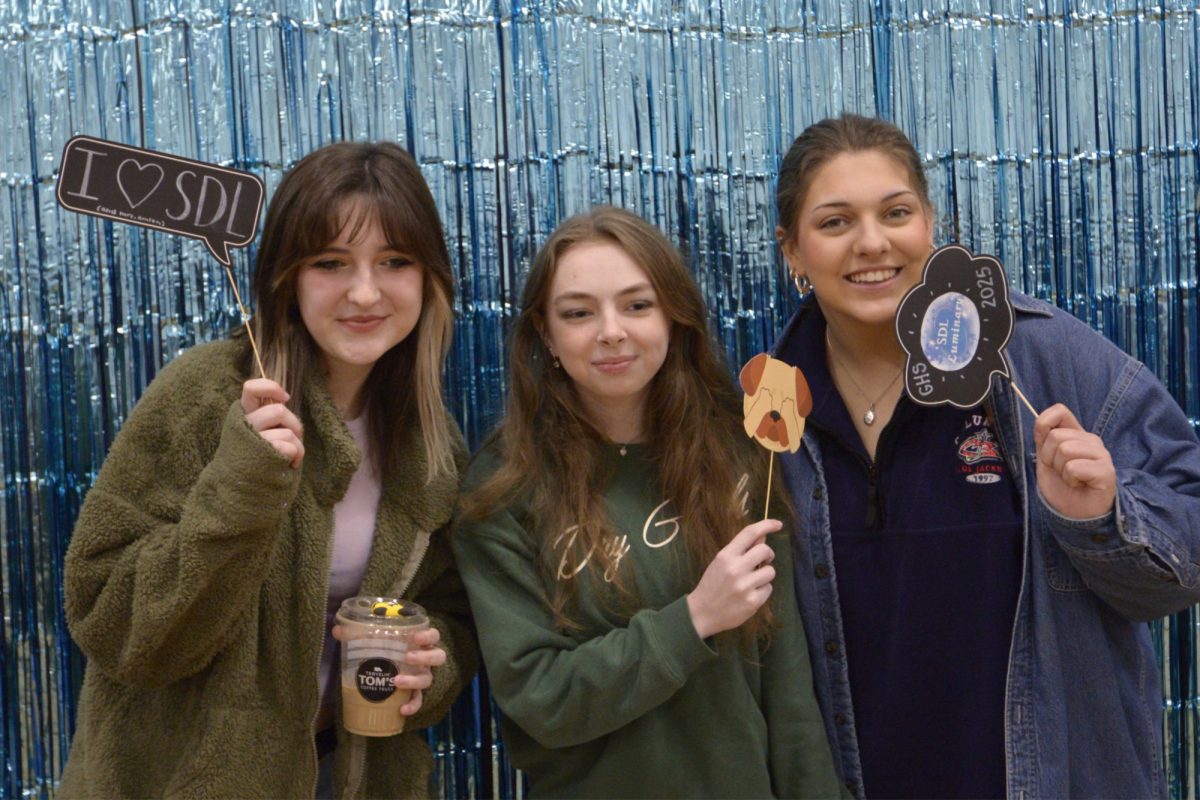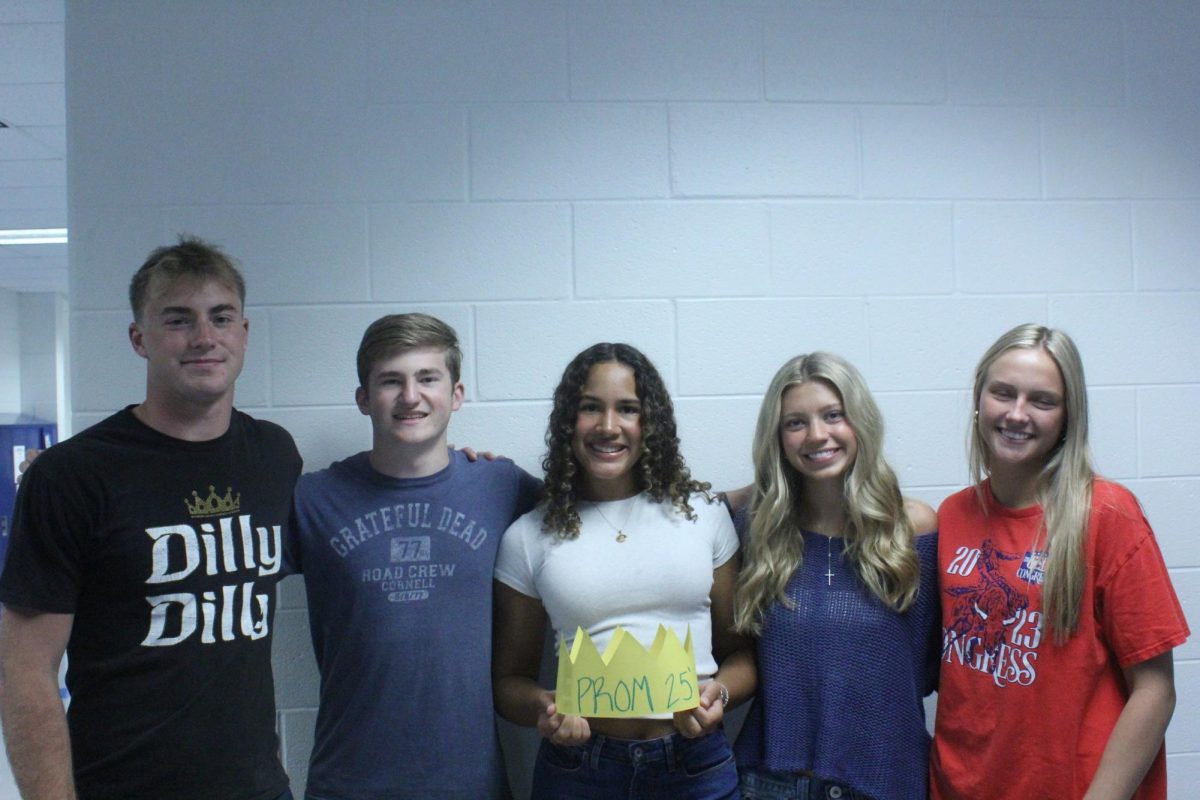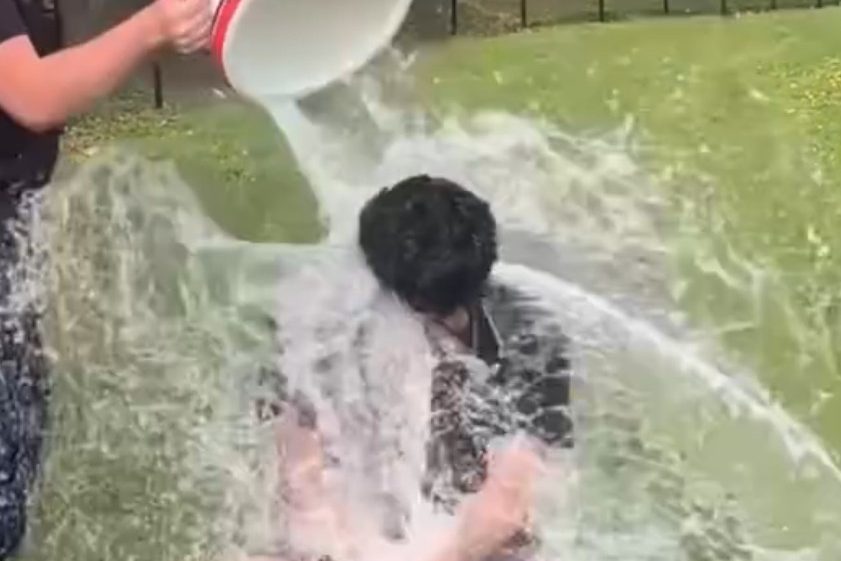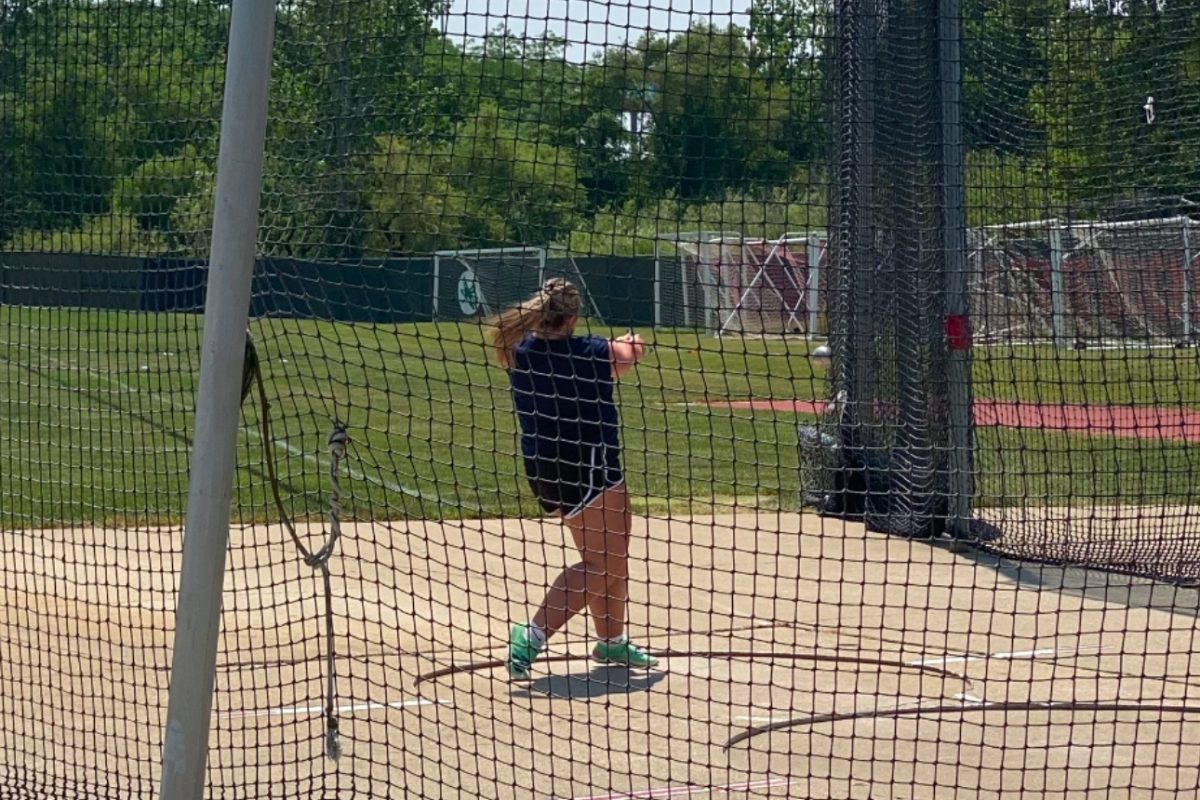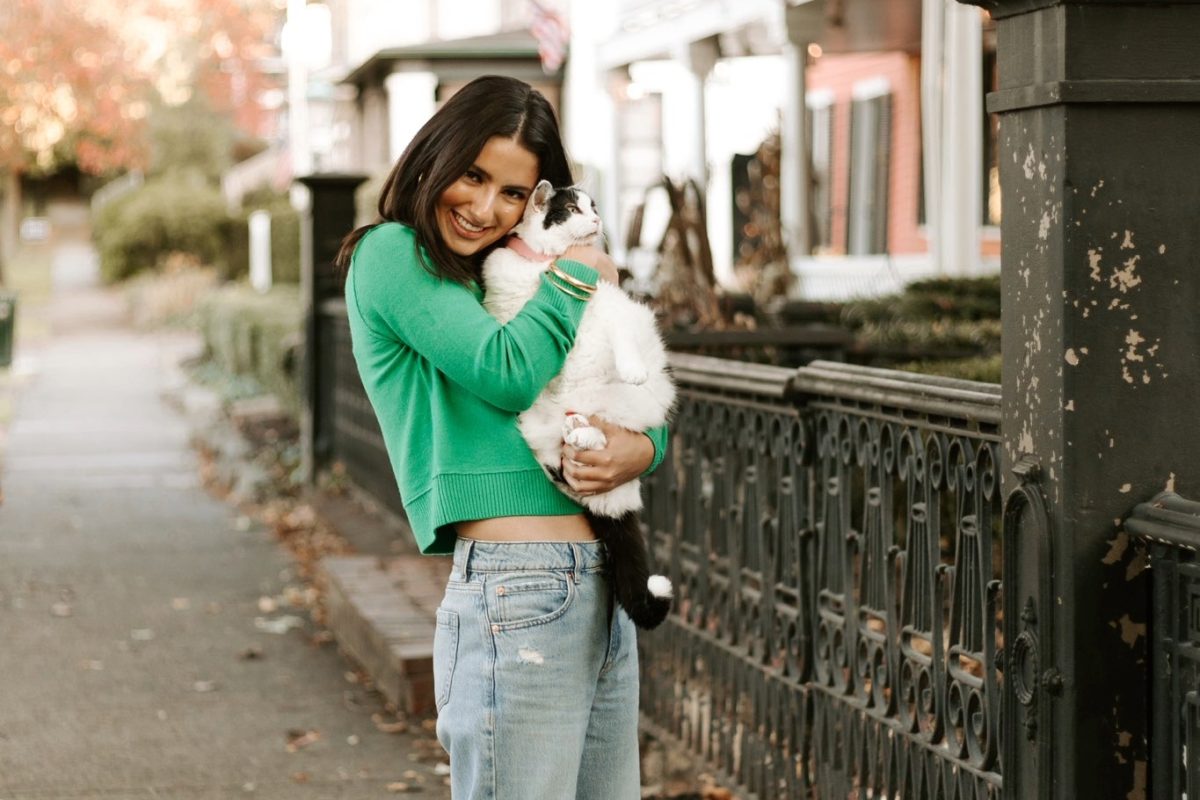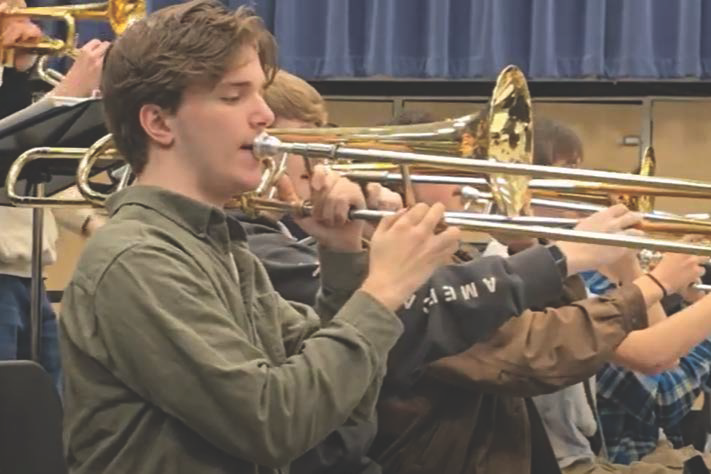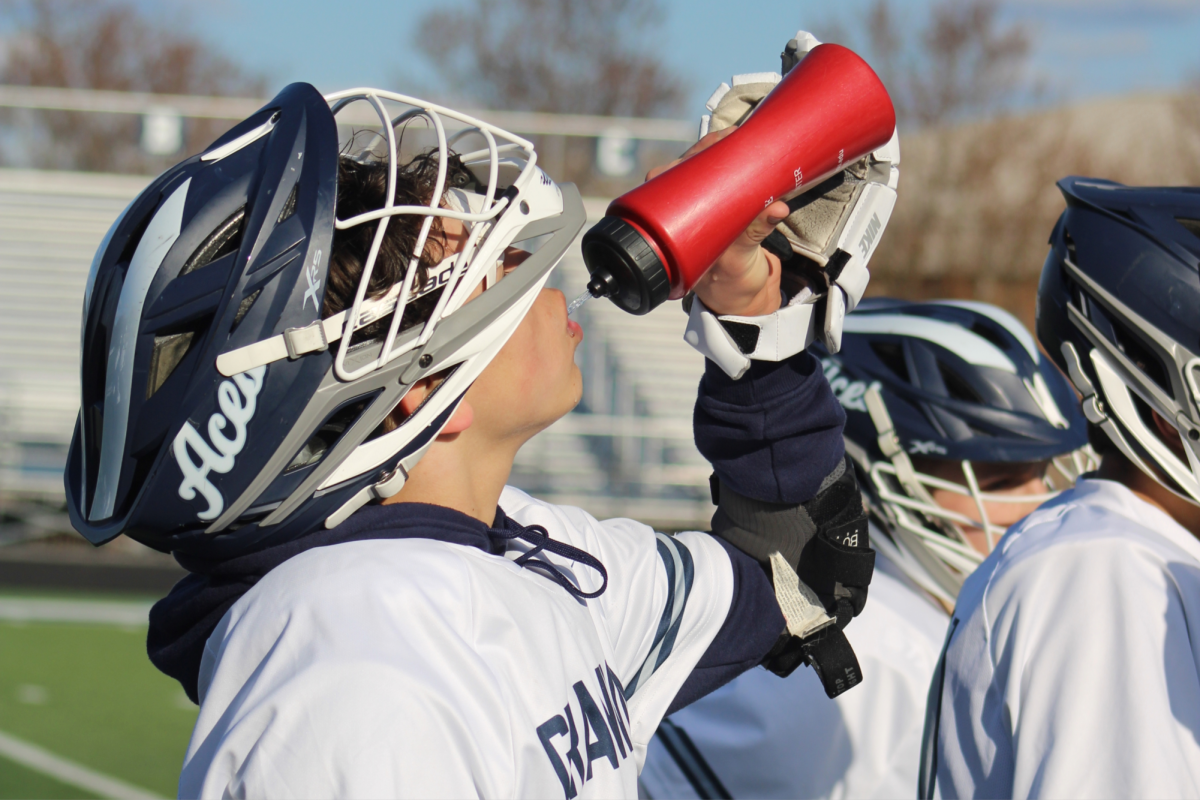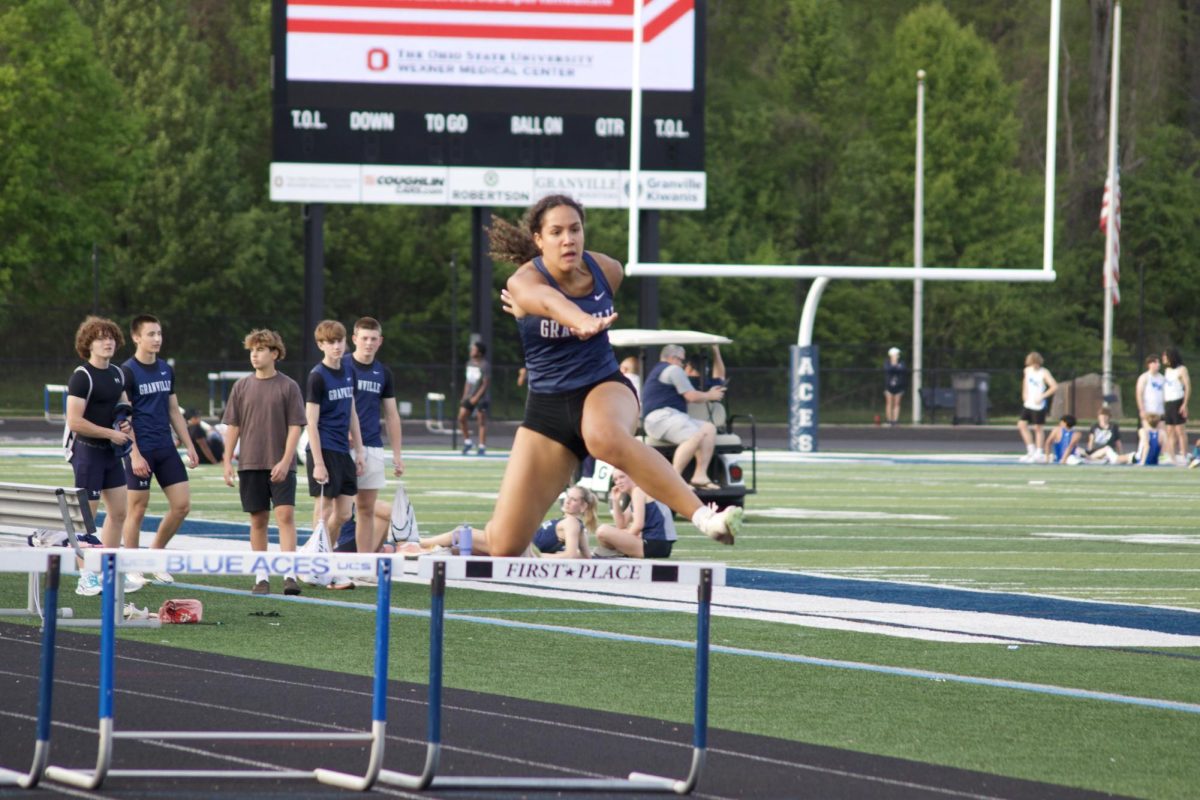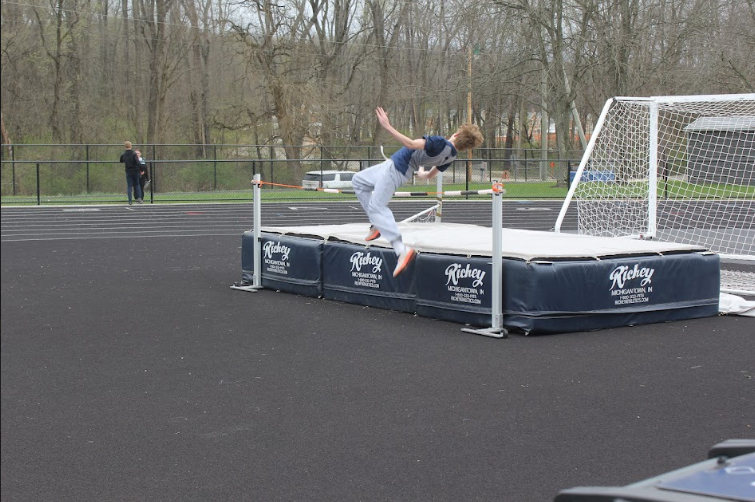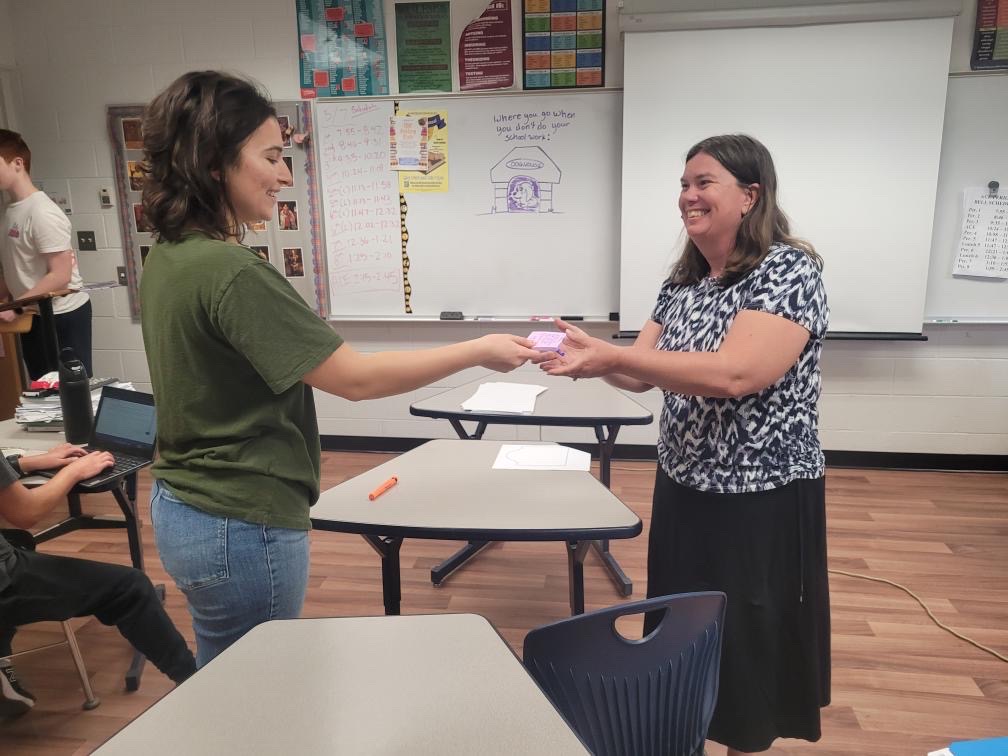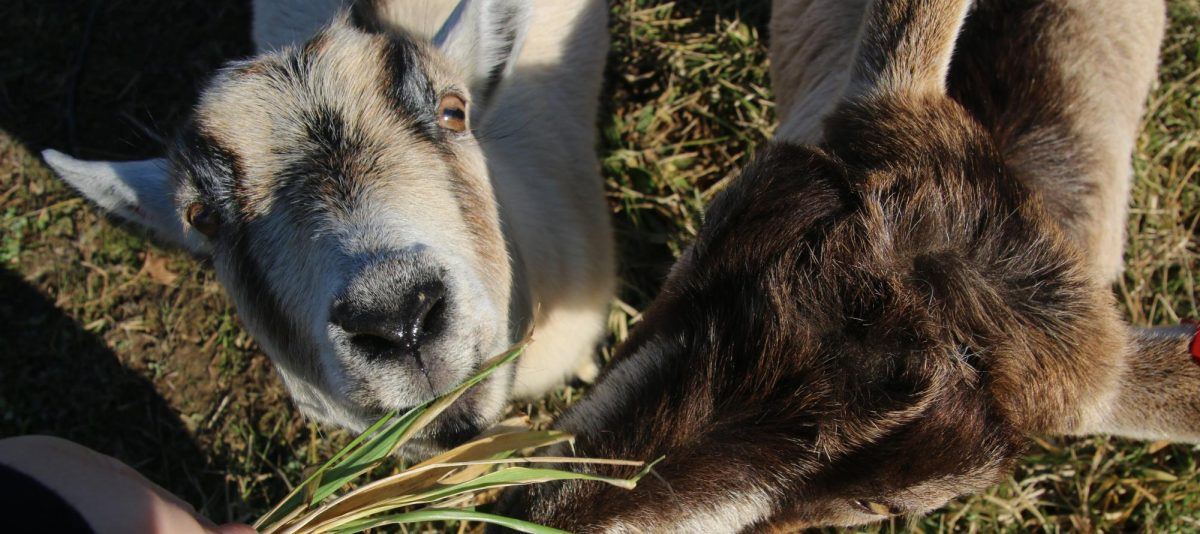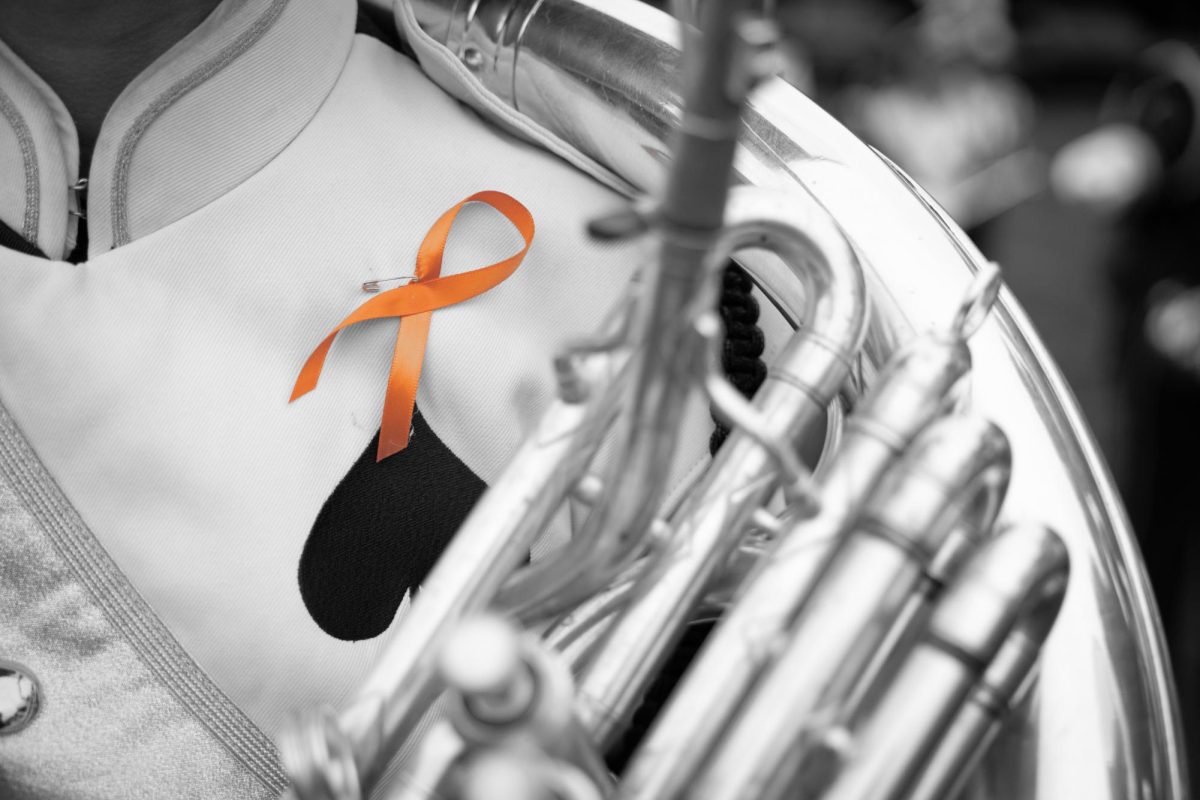Most high school students have a long list of responsibilities such as homework or projects and things like that. Here at Granville High School, a group of students have the added responsibility of taking care of our goats.
Six students– Connor Smith, Drew Klaus, Sullivan Schell, Jackson Pelzer, Matt Rosen, and Joe Day– are currently caring for four goats housed at the school’s Land Lab, located near the intermediate school.
It is a huge responsible to take care of live animals, Smith said. Goats, especially, need tended to every day and night.

“Our group of guys take care of the food, water, cleaning the living quarters, and letting them out [the shed] and putting them back in at night,” team member Klaus said.
A group of students came up with the idea of having goats at the Land Lab as part of a Take Action project in 1922.
“They did all the research, developed the plan, found funding for the plan and ultimately implemented the plan,” Environmental teacher James Redding said. “They installed the fencing, selected the shed, selected the first two goats and established the procedure for care. Several of those students then committed to care for the goats over the summer.”
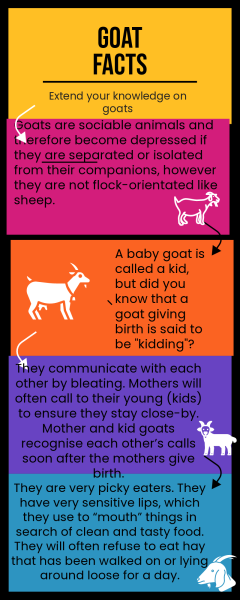
There are 49 species of goats all around the world. The two breeds of goats that we have in our Land Lab are two Nigerian Dwarfs, Dixie and Dolly, and two Pigmy goats, Opal and Luna. All four are females.
“The two Dwarf goats, which are the darker colored goats, we got from a breeder that was two hours away that the students went to pick up the goats themselves. The Pygmy goats, which are the lighter colored ones, we got from the farm across the street,” Take Action Project member Connor Smith said.
The goals of the Land Lab are twofold, according to Reding.
“From a habitat/ecological perspective, the goats are in the agroforestry area and provide two functions,” Reding said. “They help to control vegetation and reduce the need to mow around the fruit trees and their waste provides nutrients for the fruit trees. If and when we add chickens to that area, their presence may help keep predators from the site (raccoon and hawks).
“From an educational perspective, it gives students an opportunity to learn about animal husbandry (care) and creates a ‘gateway’ to the Land Lab and the many educational opportunities it provides,” Reding added.
Another benefit of having goats in the Land Lab is to control invasive species.
“The original idea was to use them to eat back the invasive species in rounds using the gates to keep them in specific areas,” Senior Cheyenne Lescus said. “With this we are currently trying to see the growth of the trees while having the goats around them.”
Through this experience, Lescus hopes to get them to move around the land lab to cut back on the invasive species and weeds all over. They are also beneficial for using less carbon emissions at the land lab when cutting the grass which involves fossil fuels.
“I am hoping to learn more about responsibility and commitment,” Smith said.
Below is a quiz to strengthen your knowledge on goats.




